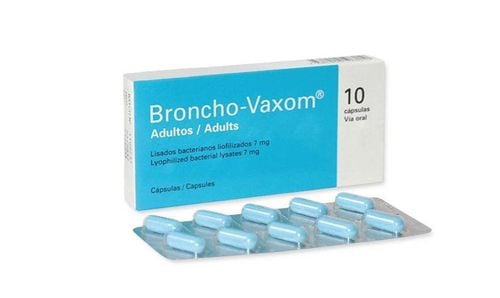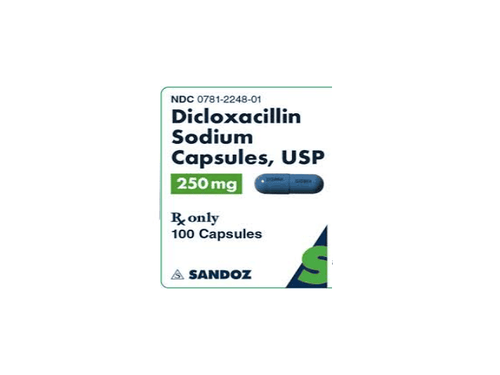This is an automatically translated article.
The article was professionally consulted with Doctor Department of Emergency Resuscitation - Vinmec Hai Phong International General Hospital.
Bronchiolitis in children is a common respiratory disease that can be treated at home, but if not treated properly and definitively, it can lead to respiratory failure, greatly affecting the health of children.
1. What is bronchiolitis?
Bronchiolitis is a lung infection that causes inflammation and obstruction of the bronchioles of the lungs. The main cause of the disease is an attack by a respiratory virus. Children often get sick in the cold season.
Bronchiolitis is often confused with the common cold because the initial symptoms of the disease are quite similar to those of a cold. Symptoms of the disease can last from a few days to a few weeks, sometimes up to a month.
2. Symptoms of bronchiolitis in children
The symptoms of bronchiolitis are often quite similar to those of a cold such as:
Runny nose Congestion Cough Mild fever Difficulty breathing Wheezing Middle ear infection (in infants). Some children may have other symptoms such as vomiting, loss of appetite, pale skin, etc. sluggish, comatose ... should take the child to the hospital for examination, especially with premature babies, infants under 12 weeks old or children with cardiopulmonary diseases.

3. Causes of bronchiolitis
Bronchiolitis in children is caused by a virus that attacks the small airways in the lungs, also known as the bronchioles of the lungs, leading to infection. At that time, the bronchioles will become inflamed and swollen, mucus accumulates in the airways, obstructing the flow of air, making it difficult for the child to breathe.
Most cases of bronchiolitis in children under 2 years old are caused by respiratory syncytial virus (RSV), especially in winter. Currently, at least two strains of RVS exist, so it is possible for children to get reinfected with RVS virus bronchiolitis. Some cases of bronchiolitis are caused by other viruses, such as those that cause colds and flu. The disease can be transmitted through the respiratory tract, when an infected person talks, coughs or sneezes, even touching objects of the sick person and then touching their eyes, nose, mouth.
Bronchiolitis can occur at any age, but it is still most common in young children and infants, because the child's resistance is still weak.
4. Diagnosis of bronchiolitis
When seeing signs of suspected bronchiolitis in children, parents should take the child to the hospital for examination, avoid arbitrarily giving the child medicine or leaving it for a long time to aggravate the disease, causing dangerous complications such as respiratory failure. , even death. The doctor will examine and listen to your baby's lungs with a stethoscope. If the child is at risk of severe bronchiolitis, the child will be ordered to have tests such as:
X-ray: To look for signs of pneumonia Viral test: To check for the virus that causes bronchiolitis Administer blood test : Check white blood cell count Arterial blood gas test: Determine the decrease in blood oxygen concentration.
5. Treatment of bronchiolitis

Bronchiolitis can be treated at home by:
Keep the child warm, do not let the child catch a cold Disinfect the nose and throat with a saline solution daily Give the child plenty of water to thin the sputum Give the child a fever reducer when the child has a fever over 38.5 degrees Use cough medicine, expectorant as prescribed by the doctor. During the treatment of bronchiolitis at home, parents need to pay attention to monitor the child, if the child has abnormal signs, take the child to the emergency hospital, do not arbitrarily give the child medicine without the consent. doctor's permission, especially antibiotics.
In case the child has to be treated at the hospital, the doctors will suck the sputum and clear the airway for the child. If the child has difficulty breathing, give the child oxygen. If the child eats poorly, refuses to breastfeed, does not ensure nutrition, then conduct water infusion. If the child is wheezing and has chest tightness, they will be given a saline nebulizer or a bronchodilator. Antibiotics are only used when the child has a lung superinfection.
Vinmec International General Hospital is one of the leading hospitals specializing in effective treatment of pediatric diseases, especially respiratory diseases. Pediatrics at Vinmec is fully equipped with modern facilities, leading advanced medical equipment, especially in the department there is a play area for children, creating a feeling of closeness and comfort. The team of pediatric doctors and nurses are well-trained at home and abroad, rich in experience, and knowledgeable about children's psychology, ensuring that children always feel comfortable and secure during the examination and treatment. treatment at the hospital.
Please dial HOTLINE for more information or register for an appointment HERE. Download MyVinmec app to make appointments faster and to manage your bookings easily.













